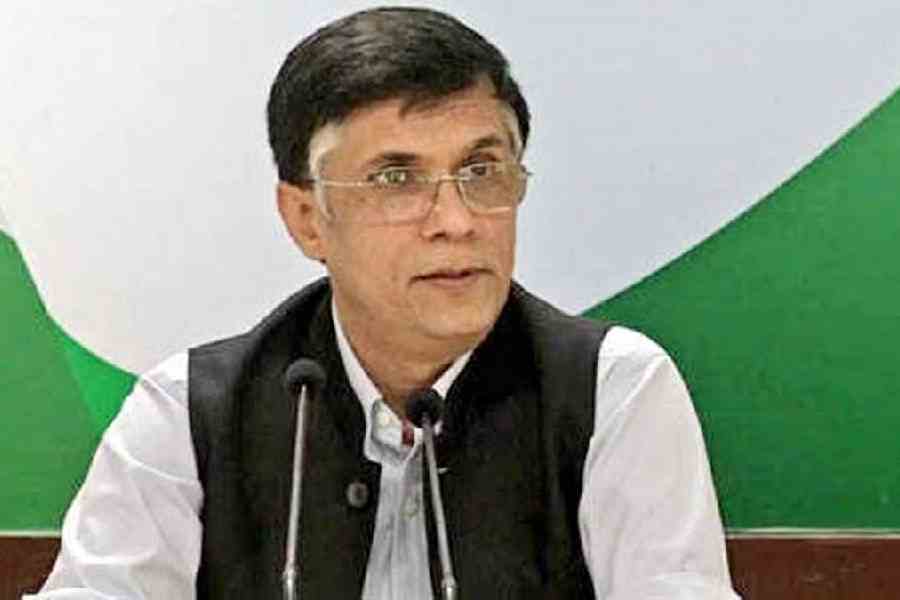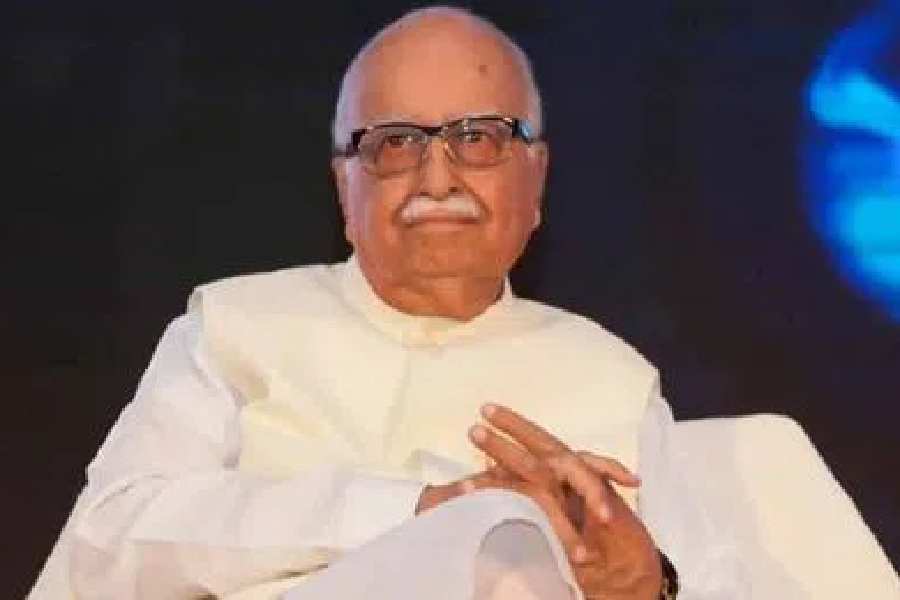The Congress on Friday asked how a political party could control the affairs of a religion and whether devotees endorsed the regulation of their faith by politicians.
“Should a political party decide when (the) faithful will go to the temple, mosque or church to worship, or offer prayers?” Congress media department chief Pawan Khera said. He said the Narendra Modi government should either declare the consecration of the Ram temple in Ayodhya a political event or leave the rituals to religious heads. Modi is scheduled to be the main host at the January 22 event.
Khera denied that the Congress leadership had stopped anyone in the party from going to the temple. “Political parties can neither direct anybody to go to the temple, nor stop anybody who wants to go. Congress workers from Uttar Pradesh are going on January 15; those who have received invitations to the January 22 ceremony can go if they so desire. Who are we to regulate people’s faith?” he said.
The comments were aimed at dousing the brewing controversy over some Congress leaders — such as Himachal Pradesh minister Vikramaditya Singh and Uttar Pradesh dissident Acharya Pramod Krishnam — expressing their desire to attend the January 22 ceremony.
Khera said three leaders — Sonia Gandhi, Mallikarjun Kharge and Adhir Chowdhury — had decided not to accept the invitation to the ceremony because the RSS-BJP had turned it into a political event and the four Shankaracharyas had said the consecration violated religious norms.
The larger question the Congress wants to highlight, however, is the fusion of politics with religion that Modi represents. The Prime Minister’s usurpation of the supremacy that religious leaders were expected to have at the consecration not only demolishes the principle of the State’s neutrality but also subjects religion to political control.
The Congress highlighted the displeasure of the four Shankaracharyas and asked: “Pran Pratistha (consecration) is a religious function or political event? If it is religious, why are the rituals not being conducted under the guidance of Shankaracharyas?
“When religious heads are saying the Pran Pratistha cannot be done in an incomplete temple, who decided to go ahead with it? The date of January 22 was chosen because of the parliamentary elections or religious necessity?”
Khera said: “If it is a religious ceremony, how can politicians act as middlemen between the devotee and God? Why are we seeing a political takeover of the religious ceremony?
“Has the RSS become the thekedar (leaseholder) of the Hindu religion? If it is a political function, let Modi come upfront and declare it so. Let Modi declare he is bigger than the Shankaracharyas even in religious matters.
“Let Modi say he is launching the BJP’s election campaign from the Ram temple premises on January 22. Modi controls the BJP, government, Election Commission, ED-CBI, CAG… let him say he controls religion as well.”
Modi has remained unfazed by the criticism from the Opposition and the Shankaracharyas, but these contrary views have brought the question of the changing character of the Indian State into the public discourse.
Political observers have raised multiple questions about the impact that the consecration may have on the nature of democracy in India: Will Modi be satisfied by projecting himself as the main arbitrator of the Hindu religion or interfere in other religions as well? Is this explicit merger of politics and religion a precursor to the declaration of a Hindu Rashtra, shedding the constitutional morality that rests on the principle of equality? Will the RSS sarsanghchalak now replace the Shankaracharyas as the supreme authorities in Hinduism?
The five people scheduled to be present in the Garbhagrih (sanctum sanctorum) of the temple during the ceremony are Modi, Uttar Pradesh chief minister Yogi Adityanath, governor Anandiben Patel, RSS chief Mohan Bhagwat and the designated priest Satyendra Das.
Khera described political interference in religious affairs as a “sin”.
“Who is Modi to do Pran Pratistha in a temple? It is clear that we are playing with the religious norms and our faith to facilitate the political tamasha of one person,” he said.
“The rituals should have been completed according to our scriptures and the wishes of the religious heads but the government has dictated terms. The devotees need to ponder over the sanctity of our religious practices. Such political control over religion will not be tolerated by the faithful.”
Congress social media head Supriya Shrinate said the one-way narrative about public outrage at the Congress decision not to attend the ceremony was BJP-manufactured propaganda.
“Religion can’t be devoid of a value system. Why is there no sense of outrage over such a perverse politicisation of religion? The media can’t see any outrage over the four Shankaracharyas staying away and articulating their concerns about the ceremony not being in tune with dharma,” she said.
“The Shankaracharyas are the pillars of the Hindu religion. Their insult is not a matter of concern? The media can’t see outrage over unemployment, over leaders urinating on a poor tribal? Is this Ram Rajya? The BJP created divisions in society. Now they are dividing the Hindus and Hindu saints. They can even project Shankaracharyas as anti-Hindu.”












